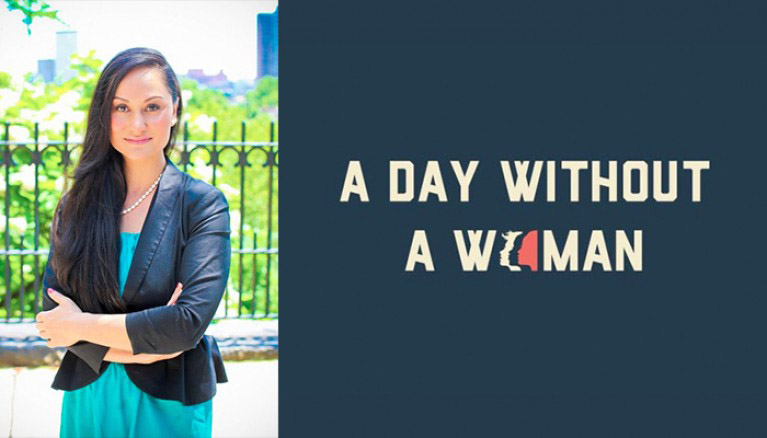Carmen Perez: “A Day Without Women” is an Opportunity for Latinas to Be Heard

Carmen Perez: “A Day Without Women” is an Opportunity for Latinas to Raise Our Voices
On March 8, we celebrate International Women’s Day across the globe. However, this year, the celebration will look a little bit different: Many will see what this world will look like without boss ass chicas like us running ish.
READ: What Would A Day Without Women Look Like in Our Nation? We’re About to Find Out
“A Day Without Women” is coming to us from the same people responsible for the Women’s March on Washington, which organizer Carmen Perez says is a follow-up that shows an intentional contrast.
“We were trying to show the world on January 21 that women’s rights were human rights, women coming together and showing radical resistance in numbers,” she said. “I think now we’re able to show the absence of women in the economic space, not only in the United States, but globally.”
As we all know, a woman’s place in the world is more important than ever right now. From our right to choose what to do with our bodies to the mass execution of our trans sisters, it is more important than ever for us to stand up and have a voice. Perez says that organized events like this give people who might be new to activism some pointers on how to start raising their voices and fight with their wallets. She also hopes it allows people to have the conversations with their family and peers. Where education begins, action follows.
“Many people are looking for direction to learn how to achieve the rights we’ve been fighting for,” she said. “For quite some time, there have been organizations seeking pay equity and looking for the opportunies … it’s important that we continue to provide entry points for people in which we could do that on an international level.”
She also notes that as a Latina, this conversation might be a little more difficult to have at home. Like many of us, she’s constantly heard from her mother the same complacent narrative of always being grateful for the opportunities we’re given and not speaking up too much. But she says that it’s our mamis and abuelas who have set a foundation for one of the key pieces of this movement: hard work pays off.
“Now it’s an opportunity for us to have other conversations to be valued as women, whether it’s paid or unpaid labor,” she said. “I’m constantly trying to represent that for the next generation of young Latinas to be themselves. If I can begin the conversation at home about feeling empowered and talking to not only our abuelas of how we are valued to our employers, that’s the direction we need to head.”
As for Perez’s own mami, she’s been getting involved in the movement herself by participating in “A Day Without an Immigrant.” Her mother felt like she needed to take a stand due to the attacks that were coming down from the federal government.
Perez notes that while many may not be able to take off from work on “A Day Without A Woman,” there are other things we can do to help the movement. Many are wearing red to show solidarity with the movement today. She recommends that if you aren’t able to take a day off, don’t purchase anything. Additionally, she reccomends that if you are purchasing something, that it be from a woman or minority-owned business.
“For our communities who have the privilege in being able to take the day off, it’s an opportunity for us to lift up those voices of marginalized communities and to ensure that the women who aren’t able to participate’s stories and work are always lifted up,” she said.
Perez ultimately has a lot of faith that these conversations will continue long after International Women’s Day is over. Many people have reached out to her and other organizers about looking to have conversations in their workplaces and at home.
PLUS: This is What Your World Without Latinxs Would Look Like
“So again, I’m encouraging these young women, the next generation of Latinas to have those conversations with our parents and our grandmothers because we are in a different climate as marginalized Latinas,” she said. “We have to take a stand and have a voice to protect [our communities].”
Source: Latina.com














